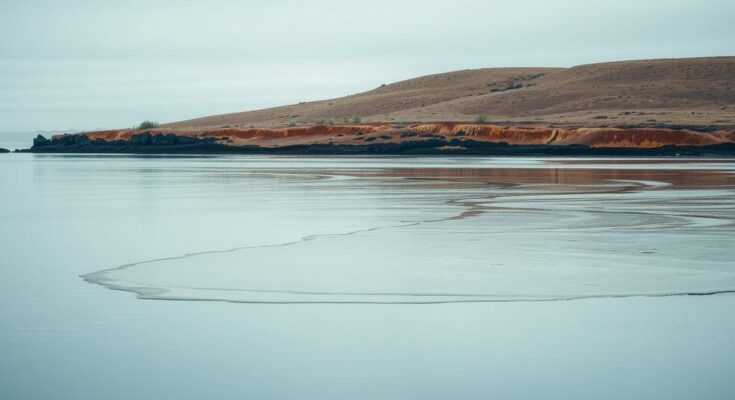Ecuador is combating a significant oil slick from a pipeline rupture affecting rivers and drinking water supplies. Approximately 500,000 residents are impacted, prompting an environmental emergency declaration. Recovery efforts are underway, with critical water supplies being delivered to affected areas as fishing livelihoods are jeopardized.
Ecuador is currently engaged in a challenging battle against a spreading oil slick that has affected various rivers, leading to a critical situation where thousands of residents lack drinking water. This environmental crisis was triggered by a landslide that ruptured a major oil pipeline in the northwest region last Thursday, releasing tens of thousands of barrels of oil into the waterways.
The crude oil spill, initially from the Esmeraldas River, extended to at least four additional rivers, impacting approximately half a million people. Many individuals in the region, which relies heavily on rivers for potable water, are left cut off and facing dire circumstances, as stated by Esmeraldas Mayor Vicko Villacis during a report on the Teleamazonas network.
In response to the spill, the Ecuadorian government has declared an environmental emergency, particularly concerning the area that houses a wildlife refuge with over 250 species. Petroamazonas, the state-run company managing the affected pipeline, is utilizing tanker trucks to recover as much spilled crude oil as possible from areas critical for local fishermen who depend on the sea for their livelihoods.
While the government has not provided an official estimate of the spill, Mayor Villacis suggested that approximately 200,000 barrels have been released. In a bid to address the urgent need for clean water in Esmeraldas, three ships are scheduled to deliver drinking water starting Tuesday. Ecuador produces roughly 475,000 barrels of oil daily, making this incident particularly impactful on its economy.
The damaged pipeline is part of the Trans-Ecuadorian Pipeline System (SOTE), which facilitates the transport of oil over a distance of 500 kilometers (310 miles) from the Amazon to the Pacific coast. In Rocafuerte, a local fishing village, the toll on the fishing industry is noticeable, as evidenced by boats and nets being covered in black oil. Resident Luis Cabezas shared his concern about the future of fishing in the area, stating that the current situation poses a significant threat to their livelihoods.
Ecuador faces a severe environmental crisis due to an oil slick resulting from a pipeline rupture, affecting thousands of residents by contaminating vital water sources. The government has declared an emergency while efforts are being made to recover the spilled oil and supply drinking water. The situation underscores the fragile balance between industrial activities and environmental health, impacting both local ecosystems and communities dependent on clean water and fishing.
Original Source: www.hendersondispatch.com




